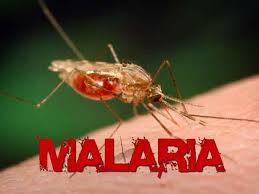
Nigeria’s fight against malaria is showing major results, with about 18 million cases prevented each year, according to the Federal Government, highlighting the success of the National Malaria Elimination Programme (NMEP).
Minister of State for Health and Social Welfare, Iziaq Salako disclosed this during his inaugural address on the second day of the 2025 Joint Annual Review Meeting (JAR) in Abuja.
He noted that between 2021 and 2023, the government distributed over 63 million insecticide-treated nets (ITNs) nationwide, resulting in 70% of households owning at least one net. In addition, 51% of pregnant women now receive intermittent preventive therapy (IPTp) as part of malaria control measures.
Salako described these achievements as clear evidence of the Federal Government’s commitment under President Bola Tinubu’s Renewed Hope Agenda to build a healthier and more resilient nation through data-driven public health interventions.
He further explained that programmes such as the Basic Health Care Provision Fund (BHCPF) and the National Health Insurance Authority (NHIA) have expanded access to primary healthcare and health insurance coverage, with over 20 million Nigerians currently enrolled.
According to him, the broader health sector gains include improvements in maternal and child health, HIV/AIDS and tuberculosis control, immunization coverage, and a growing focus on digital health transformation.
Despite these milestones, Salako acknowledged the challenges that persist, including low health financing, which currently stands at 5.2% of GDP, far below the 15% target set in the Abuja Declaration, as well as high out-of-pocket spending and uneven distribution of healthcare workers.
The Minister pledged the Federal Government’s commitment to further reforms aimed at:
-
Expanding health insurance coverage.
-
Strengthening primary healthcare delivery.
-
Investing in green, climate-resilient, and digitally powered health infrastructure.
“Only a healthy people can produce a prosperous, secure, and great country”, Salako stated.
He urged all stakeholders to collaborate toward achieving universal health coverage and building a robust, sustainable health system, emphasizing that health remains central to national development.



